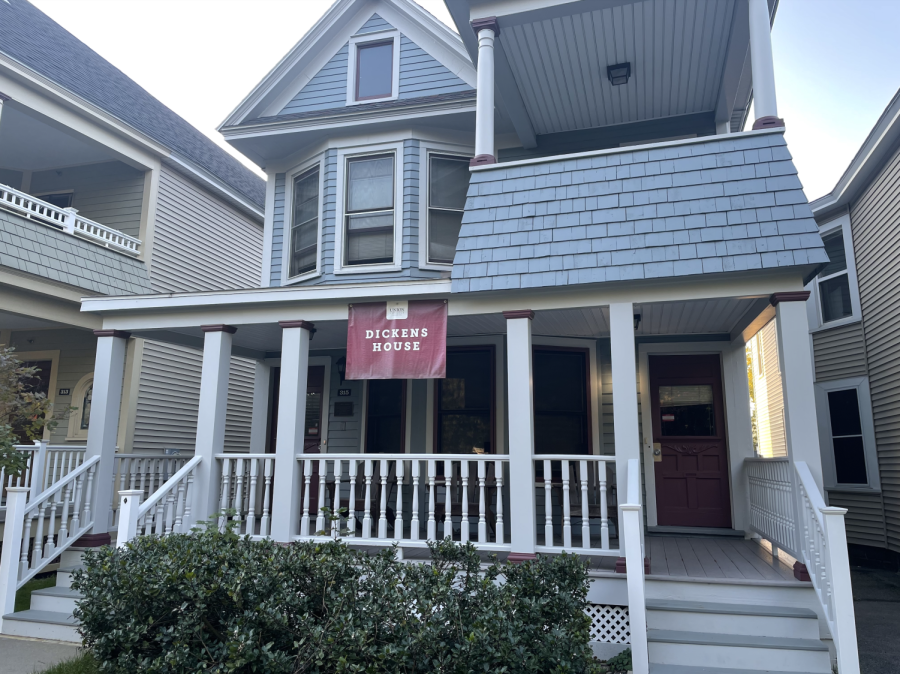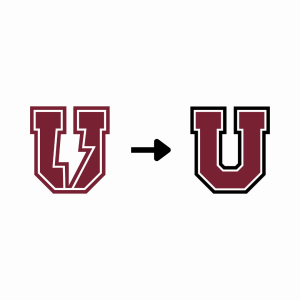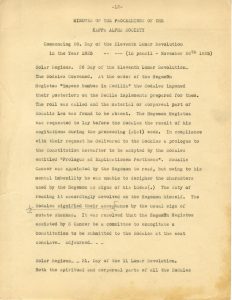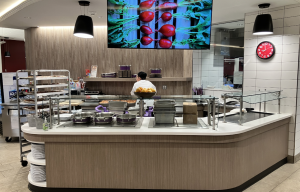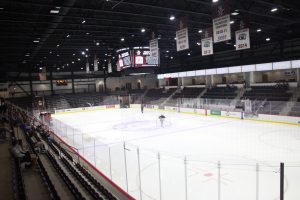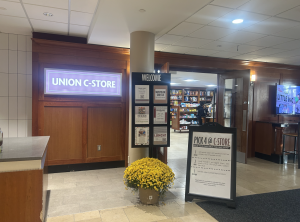Union College’s Best Kept Secret: Theme Houses
Dickens House: literature
October 13, 2022
If you’re looking for housing as an upperclassman at Union, consider applying to a Theme House! The theme houses are 13 on- and off-campus living spaces, each with their own interest or identity based theme. They house 7-20 students each, and prospective members can go through an application process to live there starting their sophomore year. Each house is run by a House Manager, a member of the house that organizes house events and communicates house business with the Theme House Consortium. Each house must host a minimum of three events open to campus per year. There are a vast number of reasons students choose to live in theme houses, and we interviewed theme house members about their favorite parts of theme house living. Here are some of the reasons theme houses are a great living option for many students.
Each theme house has, of course, a particular theme. This means members automatically have a shared interest with their housemates, and can host events that revolve around their respective theme. Misha Teixido ‘24, ARTS House’s manager, says his favorite event is open mic night, which he describes as the following: “Every term ARTS house hosts an open mic that gives people on campus the chance to share their music, standup, poetry and writing, and so much more! I always enjoy seeing peoples’ creative sides through those events.” Along with this, many students appreciate the opportunity to meet students from other departments and majors who share their hobbies. Misha says he appreciates “the close-knit community that is created from people who might not have met without a theme house. Being close with people who have various majors and interests and forming friendships with them is great.”
Maker House, another interest-based house, is run by house manager Luke Musselman ‘23. He says “As house manager of Maker, where we combine engineering and art to DIY, build, craft, and construct, my favorite part of that is working with people who have all different interests and backgrounds, to create something physical that we can all enjoy the process of creating, developing, and designing.”
Identity-based theme houses can help guarantee a safe, accepting environment in your living space, which many students appreciate. Cynthia Paz ‘23, Symposium’s House manager, says “I like living in Symposium House (and in the theme houses in general) because it’s a more tight-knit community, you get to choose who lives in your house, so people tend to mesh well and it feels like a shared home. And Symposium is also historically a house where predominantly POC and BIPOC people live, so that’s really nice too, especially at a PWI like Union.” Another example is Iris House, where members are guaranteed a safe space for queer identities. Kali Jauregui Morris ‘24 says “I definitely feel safe living at Iris and it reduces a lot of general stress around existing in a living space as a queer person.”
Each theme house is structured similarly, with two to three floors of living space. Some smaller theme houses like Maker House can house seven people, and the largest theme house, Wells, holds twenty people. There is at least one kitchen in each theme house, with most having one per floor. When asked about the best parts of living in a theme house, many students will point out the convenient access to a kitchen. Charlie McVicker ‘24, a resident of Ozone House, says “I really like having a full kitchen and cooking for one another once a week. Home cooked food is really special to me, and in general I feel like Ozone is just very homey.”
In addition, theme houses have at least one bathroom per floor, meaning residents don’t need to share those spaces with many people. Washing machines are shared only with the members of the house, and there is a lot of extra space afforded by living rooms and closets. Residents have control over the use of these spaces, which means that the living space feels more like a home than a hotel. Ysabel Thompson ‘24, of ARTS House, says her favorite thing about living in a theme house is “being able to personalize not only my room, but the floor. It feels a bit more homey than just going directly to my room, I can also hang out in the living room and be comfortable. And the kitchen is right there so I don’t need to tote my things around to cook.” Instead of cramming your belongings into a single room, appliances like a television can be moved to a shared living space, along with extra seating so that visitors don’t need to all fit into your room.
How do theme houses measure up to other living options on campus? Many benefits of theme house living depend on the individual’s priorities, while other aspects are generally regarded as clear advantages. Think about theme houses comparatively to Davidson. In Davidson, you will be living with three other people with a shared common space, and a shared bathroom and shower with your entire floor. In a theme house, you have a larger shared common space, in addition to a kitchen and a bathroom that is shared by fewer people. The washing machine and dryer are shared by 20 people maximum, whereas at Davidson there are four washing machines split between ~230 people. As Dance House member Olivia Logan ‘24 puts it, “It doesn’t feel like a dorm. You get a living room, kitchen, and bathroom that is shared with only a couple people. It feels homey.”
CPH has bathrooms in each room and washing machines on every floor, but amenities like a fully equipped kitchen and a common space that is more customizable and shared with less people puts theme houses at an advantage. Minervas are a great option for people who want access to a kitchen, but for people who want a more tightly knit space as well, theme houses provide a much smaller, more familiar community. This sense of community is widely appreciated by house members, such as Luke Musselman, who says that “My favorite part of theme house living in general is the community and that collaboration you create within the house with your peers and housemates.” The smaller scale of a theme house community is perfect for those who want to work and live closely with their housemates. Fraternity and sorority houses are sometimes physically set up similarly to theme houses, but the social aspect that comes with participating in greek life isn’t for everyone. Theme house living has a huge advantage for students that wish to live in a small community of like-minded people, but don’t want to go through recruitment, pay dues, or be limited to hosting events with a strict set of arbitrary rules.
For those interested, the application process for theme houses is fairly easy. A detailed outline of each theme house is on Union’s website, and floor plans, capacity, and information on applying is included there. Applications are accepted in the winter term. There is usually an initial google form with questions about your living preferences, interests, and other information. After this, members of the house or houses you applied to will read your application, and decide democratically which applications will be accepted. Once accepted, you usually have to schedule an interview with a member of the house. If this sounds daunting, don’t worry too much! During my ARTS House application, I was worried I would seem awkward in my interview. I actually ended up doing my interview on zoom because I was sick, so I was sure my first impression would be ruined. The house member who interviewed me ended up being really understanding, and the meeting ended up feeling more like a conversation than an interview. Now that I’m in ARTS house, I’m so glad I took the chance and applied!
In addition, when theme houses don’t fill a certain number of rooms at the beginning of the year, sometimes students can join theme houses during the year. Dance House, for example, is currently looking for applications to fill their rooms. Sophomores, juniors, and seniors are all eligible to apply now, but first-years must wait until next school year to apply to any theme house.
Overall, theme houses are a great option for students who want to live in a welcoming community with shared interests. It’s a really great opportunity to find new friends and live in a space that feels like a home. I encourage anyone with interest to apply as soon as applications are available!


